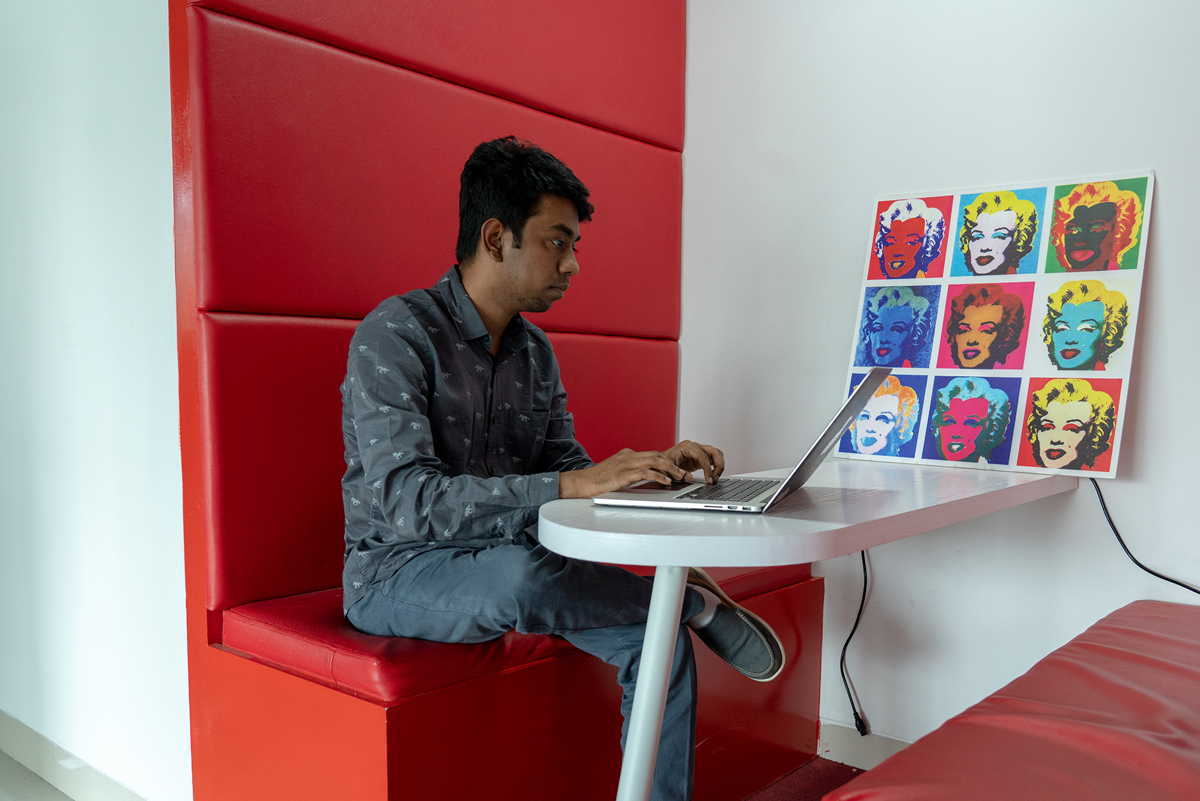
Pathao Founder and CEO Hussain M Elius on Pathao’s logistics business, how the segment, with which Pathao started its journey, has grown over the years, the dynamics of logistics business and Pathao’s ambition in the space, the beginning and phenomenal growth of Pathao Food, how cross-dispatching can change the dynamics of both food and logistics business, Pathao Resto - Pathao’s upcoming app for restaurants, challenges of food delivery business and Pathao’s plans in the space going forward, why Pathao Pay is critical for Pathao ecosystem, plans for Pathao Pay, why Pathao is paranoid about hiring right people, Pathao’s internal learning culture, Pathao’s platform ambition, and its vision to allow people to build on a platform with millions of users, how the role of a CEO changes when a company grows and why it is hard to overstate the importance of having the right people around you while building a company and much more.
This was a much longer interview, so we had to break it up into two parts. This is the second and final part of the interview, you can find part one here. Subscribe to our weekly newsletter to get our stories directly in your inbox.
Future Startup
Could you please give us an overview of the logistics business of Pathao, of your courier service; how big is your team and how it runs, etc?
Hussain M Elius
The business that we started with continues to grow, but at a different pace. Mostly because B2B businesses don’t scale as fast as B2C businesses.
Being said that, if we look at the overall competition or companies that are offering logistics services in Dhaka, we are the largest ecommerce logistics service in the country.
We have 8 different hubs in Dhaka, 3 in Chittagong, and a few across Sylhet, Khulna, and a few more major cities.
We are also trying out a few different things. We have small home offices in 30 different cities taking care of small deliveries.
The goal by the end of the year is to cover all of Bangladesh. If you look at the entire universe of e-commerce deliveries, we are doing about 60% of all e-commerce deliveries happening in Bangladesh.
In Bangladesh, e-commerce logistics is a long-tail business. There are only two or three big e-commerce players with significant business volume. And on the other hand, there are hundreds and thousands of small Facebook merchants. We get a lot of volume from these small merchants. This says a lot about the development of the space and the challenges of running a logistics business in Dhaka. It is also a challenge to our growth.
Future Startup
Since you are in logistics, you should have a better hold of numbers in the ecommerce space. How many ecommerce order fulfillment takes place per day?
Hussain M Elius
Not more than 10,000 to 15,000 including small Facebook transactions.
This number is growing but not at the rate that is going to change the dynamics of the market dramatically anytime soon.
Vision-wise, the ambition is we are going to allow people to build on a platform with millions of users, where you don't have to worry about logistics and payments. You don’t have to worry about data. It's all taken care of. You just come in and build and readily get and serve millions of users.
It's all about your journey!
Flight Expert is Bangladesh's first online travel agency (OTA). Our goal is to unlock all the facilities of the online travel agency (OTA) so that you, our customers, can easily book flights or hotels online from anywhere without leaving the comfort of your home or office. We believe when our customers win, we win. Hence, putting your needs first is our business. Every day we work hard, seek new ideas and new ways of doing things to make sure that you experience the best trip of your life. You can learn more about us and avail our service here.
Future Startup
How big is your team in the logistics business?
Hussain M Elius
100 people in total. In addition, there are more than 150 delivery people.
Future Startup
What is the model of employment there? Are these delivery people work on full-timers or contractual basis? There are examples of courier businesses that do both employ freelance basis as well as full-time.
Hussain M Elius
As I mentioned earlier, we have a host of different hubs in Dhaka and beyond, and actual deliveries take place from these hubs. The people who work from these hubs are mostly full-timer. We have to maintain a strict service level agreement (SLA). However, we are experimenting with having a cross-dispatch fleet of freelancers to do deliveries.
The freelancing fleet is very useful in the situation when there is a surge in demand. You can rely on them to tackle the wave. In time, we can establish a base fleet (who are full-time) and a temporary fleet on top of that, which is flexible.
We have Pathao Parcels, which is different from Courier in nature. Here, almost all of our delivery people are freelancers. It’s point-to-point delivery.
Currently, Parcel covers the entire Dhaka city and we will be launching in Chittagong soon.
Eventually, Parcels and Courier will be a lot more integrated than what it is now.
Future Startup
How big is your parcel business now?
Hussain M Elius
The business is relatively tiny. You don't always need the Parcels service. Also, we have not pushed it much yet and there are a couple of issues we still need to sort out.
The flat rate now is about 150 taka. We want to make a pricing dynamic that would make sense for our customers.
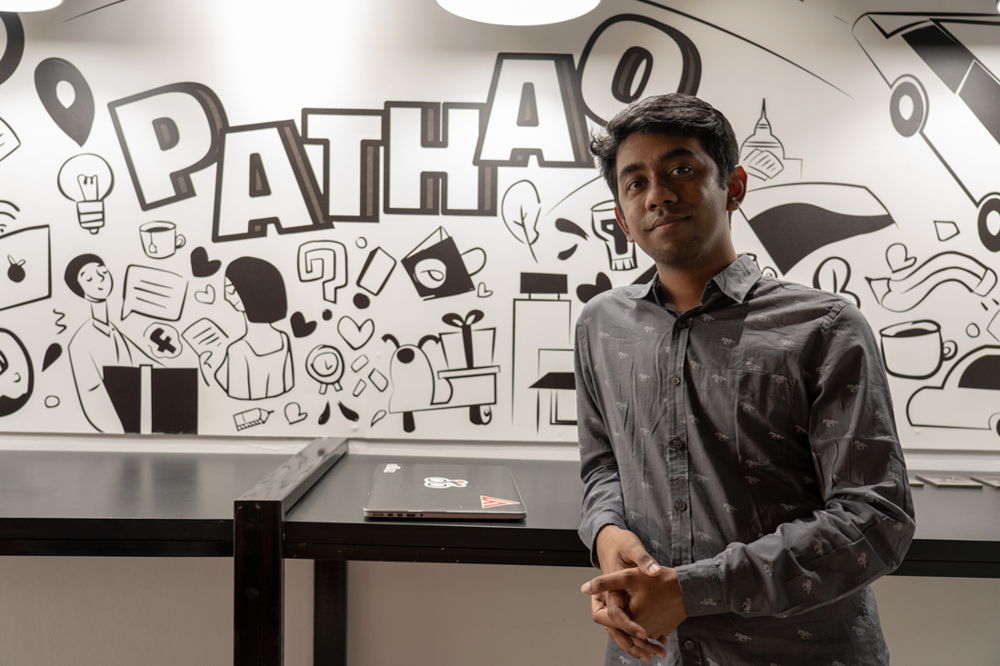
Future Startup
But don’t you think there is a huge room for growth for your parcel business, especially if you consider the offices and B2B needs of parcel delivery?
Hussain M Elius
Currently, we are focusing on the consumer part of the parcel business.
While we feel that the B2B space of on-demand parcel delivery is something that we need to explore, we still have to figure out the problem around SLAs. Would a bank be comfortable dealing with a freelancer? Probably not.
There are challenges, when it comes to B2B, of operating with the freelancers' model and when you are dealing with official documents. We just started testing the waters. We will have to come up with something that the market accepts. A lower-cost alone would not cut it. We need a stronger proposition.
Future Startup
What do you think about the competition in the logistics space?
Hussain M Elius
It's the same as the rides. Starting a company is relatively easy, be it rides or logistics. But what is not easy is achieving scale and making it into a solid business.
Since there are opportunities in the space, there will always be competition but competition would not change our business much. It is and will always be about us - what we do as a company and how we serve our customers which will make all the difference.
The e-commerce market is growing. But there is a long way before it finally makes room for multiple logistics businesses to operate profitably. Logistics, at the end of the day, is a capital-intensive business. It is hard to make it in the space with a resource-light approach.
We can see that the market is growing because our volume is growing. But it's not growing as fast as people like to think it is.
Future Startup
You have these hubs for your logistics business which is, to some extent, similar to many other logistics companies. And some logistics companies in Dhaka are using these hubs to offer warehousing solutions to merchants as well. Sort of fulfillment center solution. Amazon has a similar solution called FBA. Do you have any plan to get into a similar business where you will be offering warehouse solutions to your merchant partners?
Hussain M Elius
We're still figuring out how to serve these f-commerce and e-commerce merchants better. The large e-commerce companies would almost always have their own warehouse facilities, so they would not be your target customers if you are offering such a warehouse facility.
There are smaller ecommerce and F-commerce companies that may take benefit of such a facility. In which case, the question of volume comes in. Would these smaller merchants have the volume?
It is something that we have thought about but there are questions about whether there is a need for such a service. E-commerce warehousing can be done, of course, but is it feasible business? Is there a need in the market?
There has to have real business value before we jump into it. We won't do it for the sake of doing it.
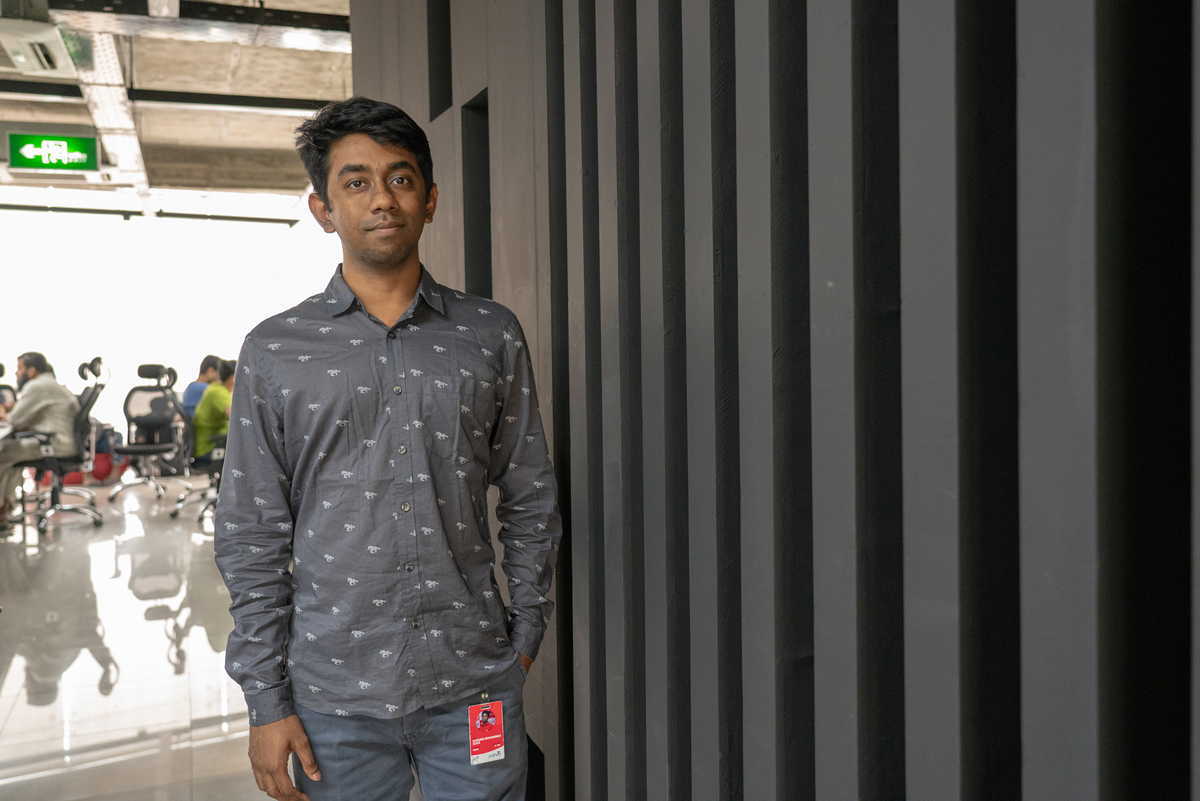
Future Startup
As you mentioned, there is a large number of small merchants online. In fact, a significant number of deliveries come from these small merchants. Over time, in the long run, are these businesses viable? Once the bigger players grow even more, do you think they can survive?
Hussain M Elius
There will always be a market for these small merchants. At this stage, all they need to do is grow their numbers. If you look at China, small merchants basically dominate the market. Alibaba and other ecommerce platforms empower these merchants.
Trust remains the main challenge for ecommerce in Bangladesh. People don't trust e-commerce as much as we want them to. Certain big players have offered a lot of subsidies to drive growth, but in many instances, they failed in ensuring quality services or genuine products. That has created a hole in people’s trust in ecommerce. This has hurt everyone in the space.
Smaller players usually maintain a personalized relationship with their customers because they operate in niches. So there will always be room for smaller merchants.
Future Startup
What are the plans for the logistics business?
Hussain M Elius
Overall, getting to a place where we can use cross-dispatching is a priority for us now.
Cross-dispatching will allow us to utilize our fleet more effectively and efficiently. It’ll both reduce our cost, as well as allow us to do more deliveries i.e. increase our capacity. At the same time, it will allow our riders to earn a lot more money.
We are also looking to expand beyond e-commerce delivery. As I told you earlier, the e-commerce market is not growing as fast as it should, hence we have to look beyond it to grow our business.
Future Startup
Let’s talk about Pathao Food, how many restaurants do you have now?
Hussain M Elius
We have more than 3500 restaurants as we speak.
As for orders, We have seen phenomenal growth. We have been delivering more than twice as much as all our competitors combined.
Future Startup
Why is Pathao Food important to you? Could you please give us an overview of Pathao Food and how it works?
Hussain M Elius
Pathao Foods is going to be a higher-margin business for us than Rides. Food is usually a higher-margin business.
Technically, it is quite similar to rides. We have restaurants on our platform. You open the app, choose a restaurant and a menu and then place an order. As soon as an order comes in, the rider nearest to the shop receives the order, goes to the restaurant, picks up the parcel, and delivers it to the customer.
All our Foodmen go through training before starting their work with Pathao Food. The process is pretty simple. There is no call center; no bottleneck. Because of the size of the fleet, there is always someone near a restaurant.
Our average delivery time is now 40 mins which includes preparation of the food as well. As we establish more restaurant partnerships, the time is likely to go down.
In the future, we want to make the process such that the restaurant will inform the driver when to come and pick up the food, instead of the driver waiting for the food getting ready. It will increase our efficiency.
In our current setting, orders directly go to the riders. As we go, we plan to send it directly to the restaurants so that they can start preparing the food when the rider is on the way. It will bring down our delivery time even further.
We are not thinking about building a payment product which is open and can be used in availing other services at this moment. While it means the use case will remain limited, we are positive as Pathao has become a ubiquitous service and ingrained in the lives of our users which means even if it remains a closed loop wallet, people will be able to extract value from the service.

Future Startup
You plan to cross-dispatch logistics which means essentially integrating logistics with rides. So far we know, you have partially done it with Food where riders can also do the food delivery. How does that work?
Hussain M Elius
Currently, there are two separate fleets for two businesses. There are ones who only do food, most of these people are on cycles. As I mentioned earlier, cross-dispatch is where we aim to get but it will take time.
It is challenging for several reasons. One of the reasons being that there aren't enough drivers. So we realized that it would harm our rides business if we use the same fleet for Food. Hence, we introduced a new fleet with cycles that does the food delivery. They can do short-distance deliveries and don't need a motorbike; or even a license for that matter.
We have a smaller cross-dispatch fleet where people can do both Rides, Food, and other deliveries as well, which is still in the experimental phase.
Future Startup
What are the challenges in the food delivery industry?
Hussain M Elius
Restaurants are always changing menus which makes it difficult for us to fulfill many orders. It also affects the customer experience. That is why the partnership with restaurants is critical. When we have partnerships, restaurants will update us when there is a change in the menu and we can update it in real-time.
We currently don't have many formal relationships with the restaurants. We simply list all the restaurants and menus on our app and when a customer places an order, we fulfill the order.
We are developing an app for restaurants called Pathao Resto. It will be a way for the restaurants to talk with Pathao. We are releasing the app in a few weeks. This will allow restaurants to directly receive orders from the customers. Once we launch the app, it will pave a way for more exclusive deals for us with restaurants and other services.
Future Startup
Pathao Food has seen phenomenal growth over the past months which is great. At the same time, as you mentioned, you currently don’t charge any commission to the restaurants and you are offering promo-code to customers as well. Do you think the dynamics of competition going to change for you once you start charging commissions from the restaurants?
Hussain M Elius
Not necessarily. First of all, customers are with us. We are now building a user base that relies on us and uses our service. If you could do that, the rest takes care of itself. For restaurants, we are a sales channel. Their goal is always to increase the sales and number of orders. And if we can help them in achieving that goal, they will work with us.
At the same time, we already have this huge users base, and working with us means the restaurant can promote them on the Pathao platform.
I don’t think that getting into a formal partnership with the restaurants is going to change anything except that we will be able to serve our customers better.
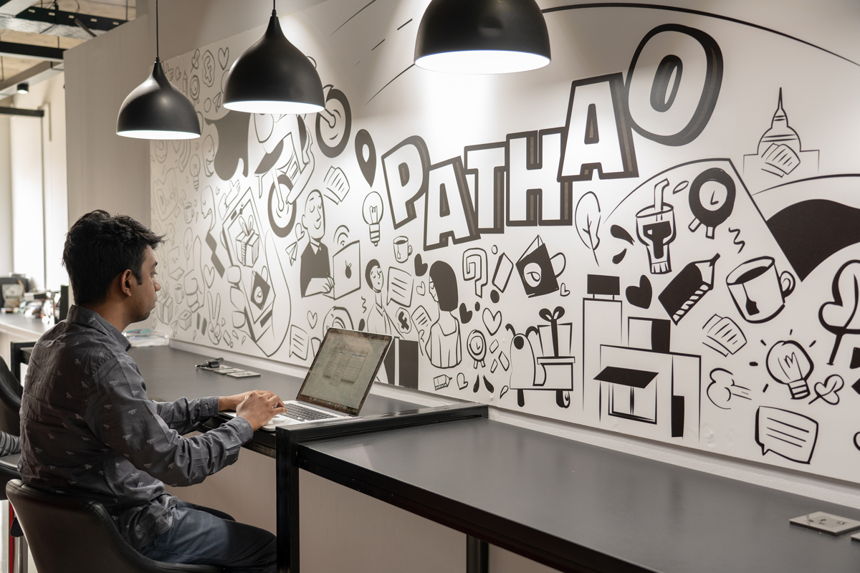
Future Startup
We look forward to when you roll out your restaurant product. Let’s talk about Pathao Pay. We are super excited to see what you release, could you please tell us a bit about Pathao Pay?
Hussain M Elius
Pathao Pay is a closed-loop wallet. It's not a payment service. It allows you to top-up money into your Pathao Pay account, like flexiload, and use Pathao services with that money.
Pathao users can top up money from their credit cards and other MFSs or from our drivers who will act as our agents and use that money to pay for Pathao services. There are no cash-out and no transfer options in the service.
Over time, the service will evolve. We want to perfect the pay-product as a closed-loop wallet where we do not have to think about regulatory requirements. We want to build a product that is easy to use and driven by customer feedback.
We are not thinking about building a payment product that is open and can be used in availing of other services at this moment. While it means the use case will remain limited, we are positive as Pathao has become a ubiquitous service and ingrained in the lives of our users which means even if it remains a closed-loop wallet, people will be able to extract value from the service.
Pay is ready and we are gradually rolling it out. On the first version, it will be available for rides and cars, and then gradually for Food and other services. We have integrated all the available MFSs into the service so that people can easily load money.
Future Startup
What leverage do you want to achieve with Pathao Pay in the long run? Why should people use Pathao Pay over other services?
Hussain M Elius
The main focus for us now is building a great product. Maybe in a few years, it will become a stand-alone tool.
What does Pathao have now?
Apart from transportations, Pathao also has partnerships with almost all the independent e-commerce merchants and we will have partnerships with almost all the restaurants.
As we go, we will be adding more services which means the number of services that we enable through our app will grow, which means Pathao is everywhere when you think about it which will create more use cases for the pay.
Future Startup
What do you see happening in the digital payment space down the line a few years in terms of consumer adaptation and competition?
Hussain M Elius
The regulatory environment remains a formidable challenge for fintech players. For instance, if you want to be an MFS company, you need to be 51% owned by a bank; which means a lot of entrepreneurs cannot take that route.
This makes independent innovation in the space challenging.
The regulatory environment is not there to support an open infrastructure with a lot of competition. If there was a way to get licenses more easily, whether, through banks or the government, that would make the market more competitive.
Future Startup
You have raised a big round a few months ago, what are the areas you are looking to prioritize going forward?
Hussain M Elius
We want to bring in more great people. These are people who will build the future Pathao. We are very particular about the way we hire. Attracting top talents has always been a priority for us.
People tend to join Pathao because they are inspired by what we have done so far and can see the vision through our work. They like the fact that there is a local company that is taking on big foreign competitors.
That [hiring great people] is what we want to do most, hiring more great people to accelerate our growth. A great business is all about great people.
At the same time, we are investing in our people to help them grow, learn and get better at their job.
Most people in Bangladesh don't have bank accounts which is why we need Pathao Pay to address that. Pathao Pay will allow us to create data and credit history of our drivers and hence, design a financing model that helps them to grow. Financial services are going to become more important in the story of Pathao. It is incredibly difficult to get credit in Bangladesh; allowing that option to open up for our drivers and customers would make a world of difference to our community.
Future Startup
Do you any internal learning and people development programs?
Hussain M Elius
We do have a few. For example, we have a project called Project Shikhao, where senior people acts as a mentor and helps new teammates in learning and development. This initiative is working out pretty well.
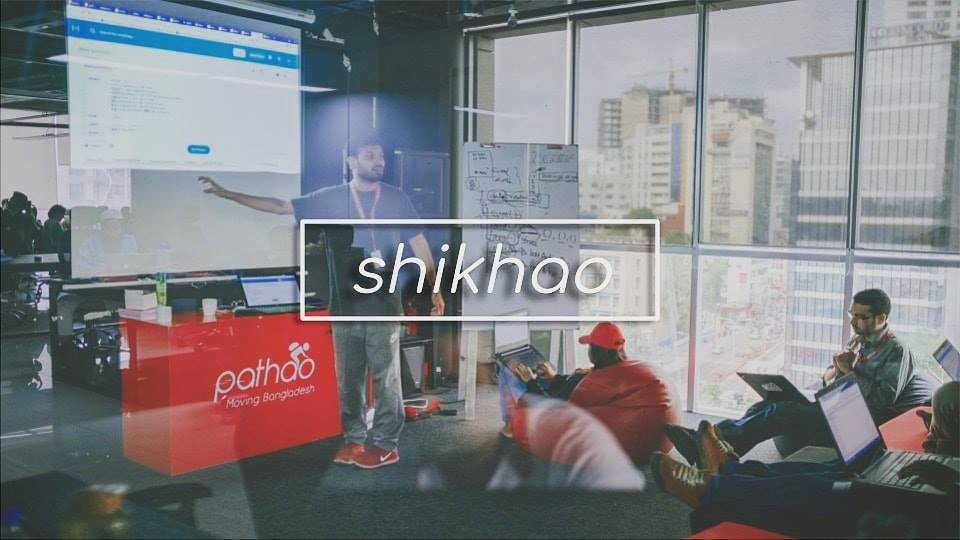
I used to think that doing things fast is better than getting stuck thinking about it. However, I have come to learn that while it's probably useful for small companies, it is detrimental when you are growing. In fact, thinking, spending time in planning and designing strategy, is important regardless of your size.
Future Startup
Ride-hailing companies are doing all kinds of things. For instance, Go-Jek, one of your investors, recently got into video streaming. One possibility I see for Pathao, provided that you have a large user base, is turning the Pathao app into a platform, opening it up, and allowing other people to build services on top of it. All kinds of services. In one word, Pathao as a platform. The question is what's your vision for Pathao going forward? Do you see a point where Pathao opens up itself and allows people to build on it?
Hussain M Elius
We can learn from Go-Jek and other players such as Uber and Grab and Ola and apply some of those lessons in the local context, but that does not mean that we are going to follow the path of any of these companies. I believe that we have to chart our own path and it is certainly going to be different.
Similarly, many of the things that these companies are doing probably don’t make sense in the context of Bangladesh, a fact we have to be mindful of.
In terms of product, we are slowly moving forward. The level that we want to reach requires more tech talent in Bangladesh. This is a challenge, finding people who can build products that scale.
None of the other ride-sharing companies is an open platform. Turning yourself into a platform is an entirely different ball game. It is something that we have been thinking about which should allow us to empower and serve more people.
Vision-wise, the ambition is we are going to allow people to build on a platform with millions of users, where you don't have to worry about logistics and payments. You don’t have to worry about data. It's all taken care of. You just come in and build and readily get and serve millions of users.
However, there is still a long long way to go before that. As I mentioned, becoming a platform comes with a lot of new kinds of challenges. But, yes, allowing people to build on our platform and serve our customers is something that we aspire to explore in the future.
Future Startup
For the next few years, what are the top priorities for Pathao?
Hussain M Elius
Pathao Pay is one of the top priorities. We need to make it into something that is sustainable and something that people use daily.
Secondly, to start impact financing to help our riders to get bikes easily that would address the supply constraint and allow people to come into the Pathao platform and earn more.
Most people in Bangladesh don't have bank accounts which is why we need Pathao Pay to address that. Pathao Pay will allow us to create data and credit history of our drivers and hence, design a financing model that helps them to grow.
Financial services are going to become more important in the story of Pathao. It is incredibly difficult to get credit in Bangladesh; allowing that option to open up for our drivers and customers would make a world of difference to our community.
This would, in turn, help people out of poverty. It would allow people to be entrepreneurs and create earning opportunities. We are working on a few things and trying to figure things out. It's not necessarily related to pay but not exclusive either.
Thirdly, hiring the right people. There has not been a company like us before; hence we cannot judge people by their experience elsewhere. We need to teach people how to do the work that we do and attract the right people who would be able to navigate the ambiguous and challenging world of work at Pathao.
We have launched our management trainee program early this year. It is a very competitive program. For our first batch, we received 800 applications and hired 12 people.
These 12 people came in and started learning about data science, how to properly do marketing etc. In one year, these are the MTs who will have their own MTs. As I told you earlier, investing in people remains a key priority for us. We believe if we get people right, rest will take care of itself.
Connecting to the right people who would go and talk about you in front of other people, and would make a couple of introductions is invaluable - it gives you access to their network. Getting valuable people involved with your idea and company, even if they cannot directly add value, has its perks.
Future Startup
How do you personally navigate running one of Bangladesh's fastest-growing companies? How do you operate and learn yourself?
Hussain M Elius
As we have changed as a company, the challenges for me have changed as well. It's no more about working hard; it's more about working smart. We have all these smart people now who do what I did in the early days. And I have to hire people who can do jobs better than I could have.
I now delegate a lot of the things that I used to do. And people in the team do it with a sense of ownership.
I spend a lot more time strategizing, on big picture things, and on what we will do in the future.
I used to think that doing things fast is better than getting stuck thinking about it. However, I have come to learn that while it's probably useful for small companies, it is detrimental when you are growing. In fact, thinking, spending time in planning and designing strategy, is important regardless of your size.
Doing something is always an opportunity cost for not doing something else. It requires deliberate thinking and strategizing. A large chunk of my time now is spent thinking about what to do next. I leave it to the rest of the team to execute it.
The most important thing for me is still defining the vision and communicating that vision repeatedly. If I do a good job at it, I wouldn't have to do anything else.
There are things that I'm still learning. I personally have a long way to go until I become a better CEO. They don't teach you how to be a CEO. I am lucky to have a team and board that is carrying me through.
Future Startup
What books have you been reading lately?
Hussain M Elius
I'm learning how to be a better leader. I’m reading a book called Radical Candor by Kim Scott.
Stay away from people who ask for return at the first place in exchange of an introduction or a small help. Be aware of the fact that there are good people and then there are toxic people. You have to know who is who and navigate those waters.
Future Startup
What are some lessons you’ve learned?
Hussain M Elius
Having the right people and the right friends around you is incredibly important. The reason we have been able to raise investments for the company in the early days because people have supported us and made important introductions.
We reached out to a lot of people who helped us make the business successful. This has been a critical lesson for me. People make all the difference.
Connecting to the right people who would go and talk about you in front of other people, and would make a couple of introductions is invaluable - it gives you access to their network. Getting valuable people involved with your idea and company, even if they cannot directly add value, has its perks.
However, stay away from people who ask for a return in the first place in exchange for an introduction or a small help. Be aware of the fact that there are good people and then there are toxic people. You have to know who is who and navigate those waters.
-
1) Credit: Interview by Ruhul Kader, Shabiba Benta Habib transcribed the interview and edited it by Ruhul Kader.
2) Read the first part of the interview with Mr. Elisu here.
3) This interview was sponsored by our friends at Flight Expert, one of the fast-growing online travel agencies in Dhaka. Planning a trip overseas? Go to www.flightexpert.com, book, and relax!
4) Photo credit: Pathao
